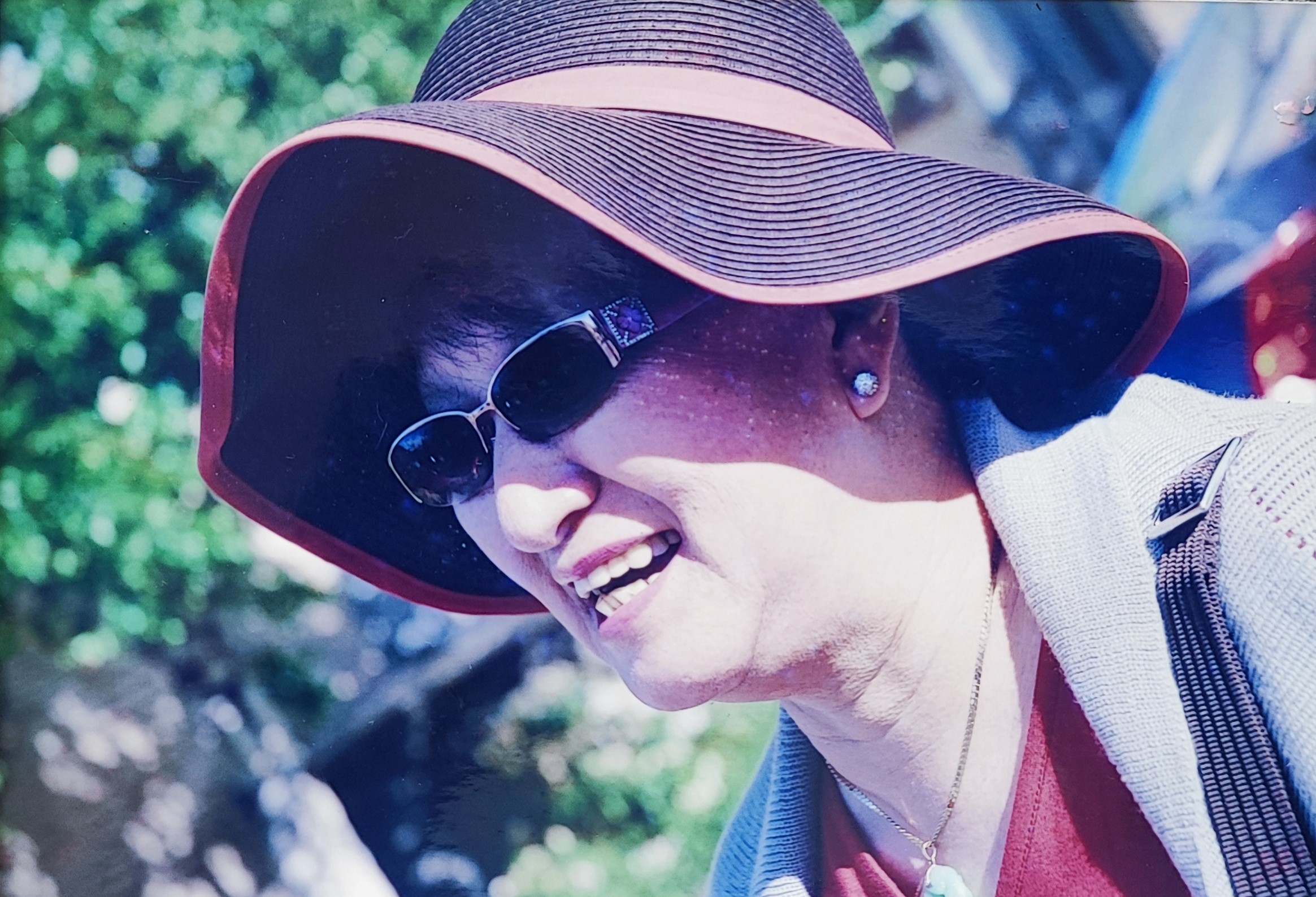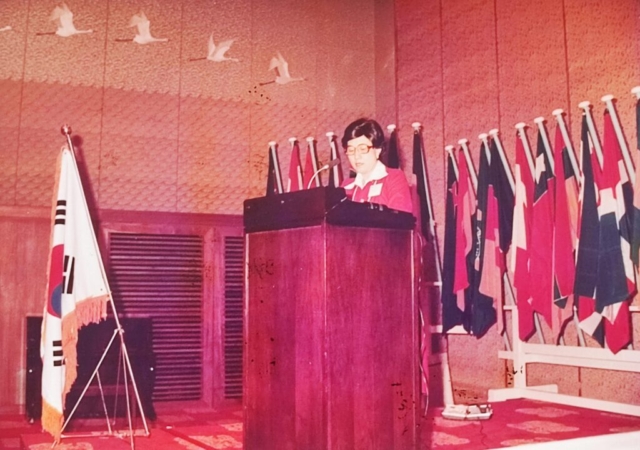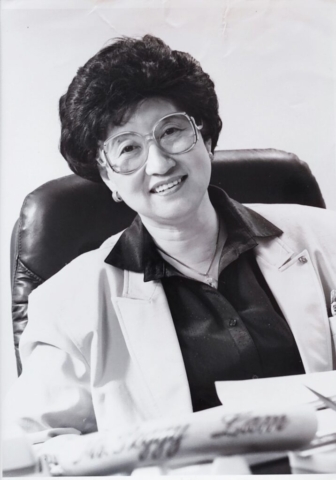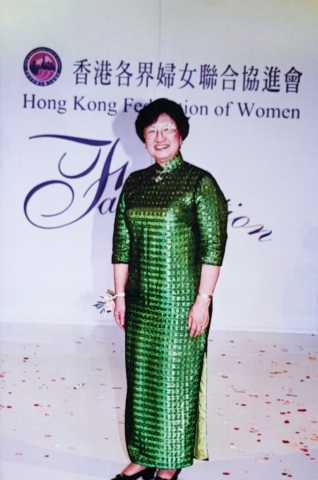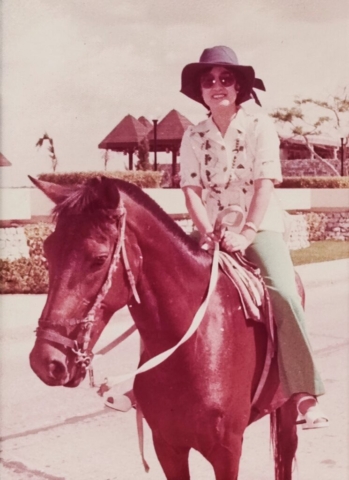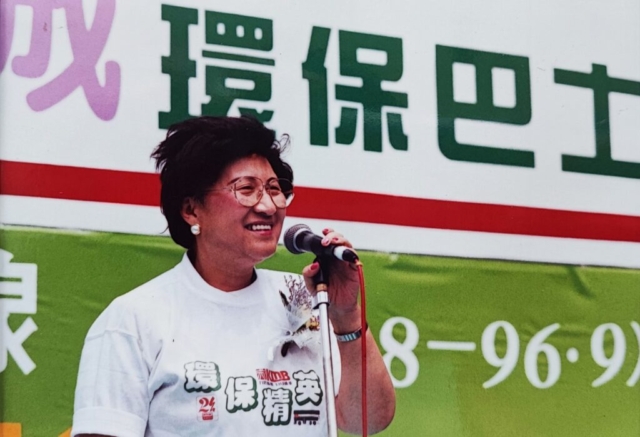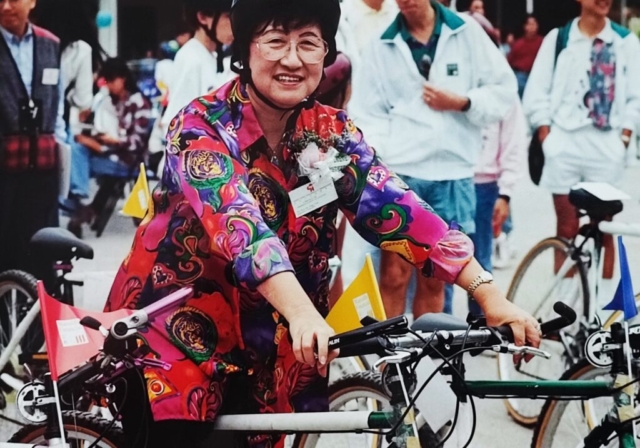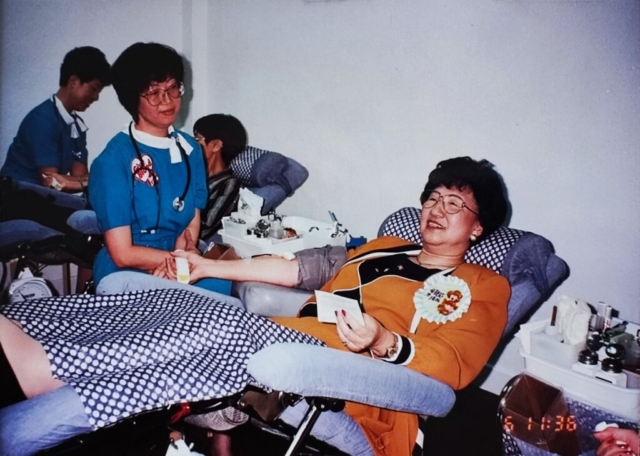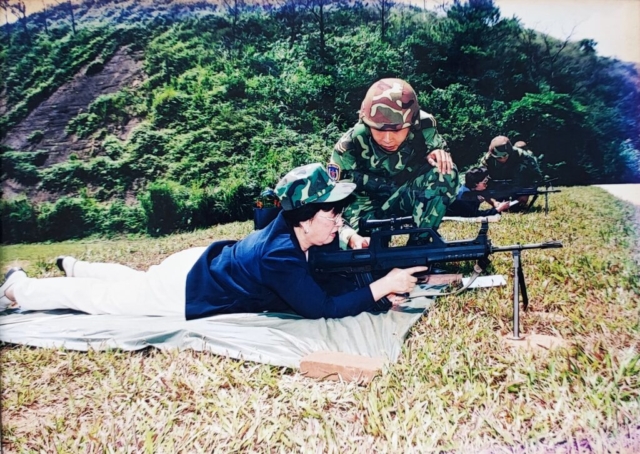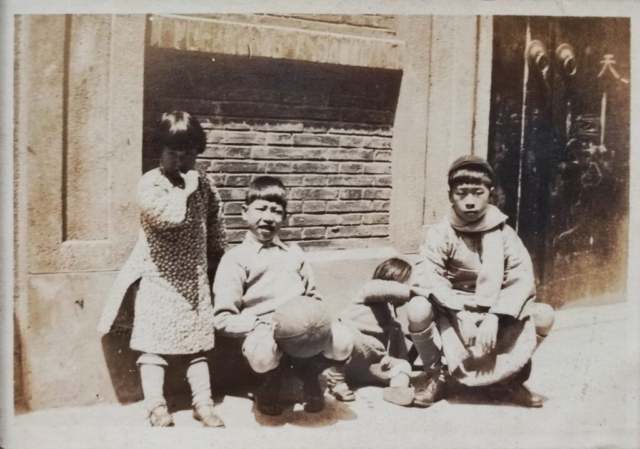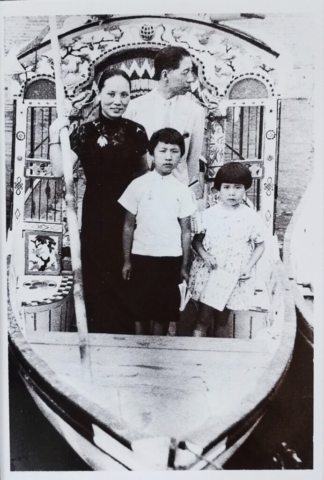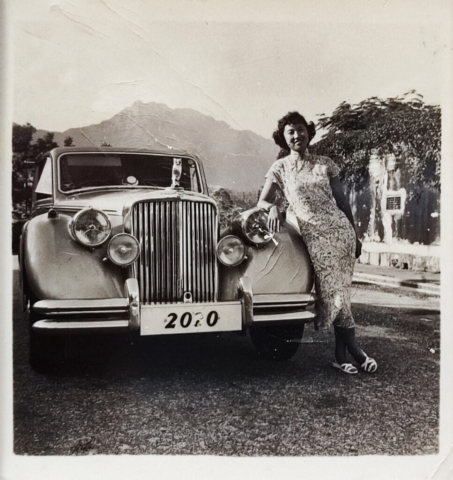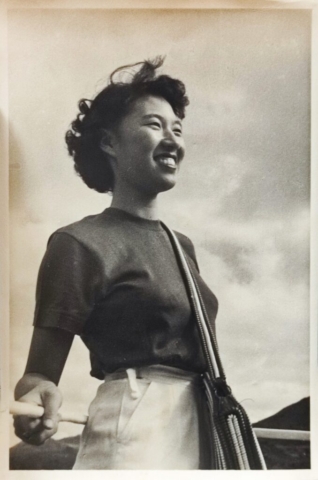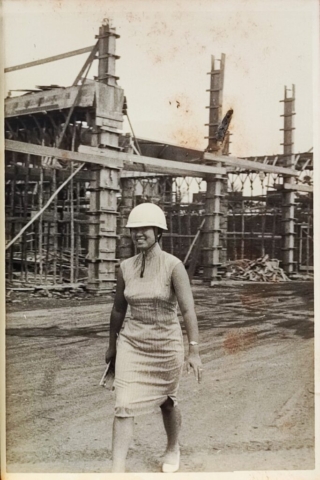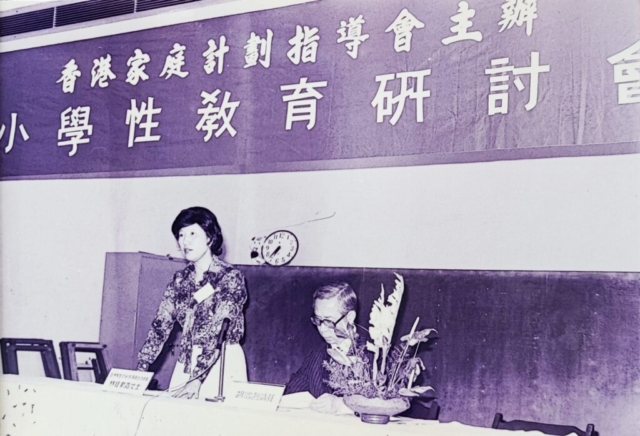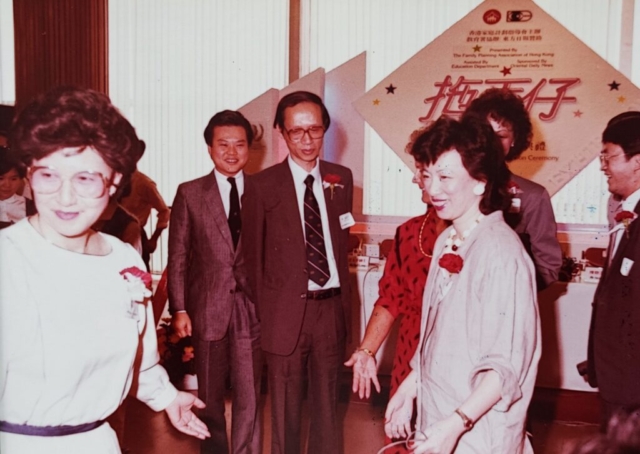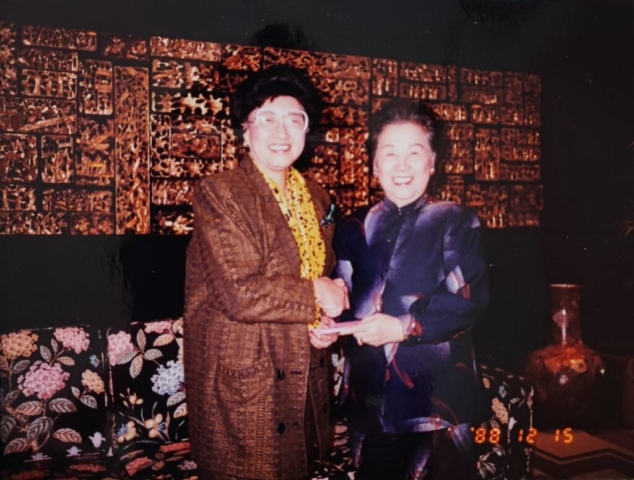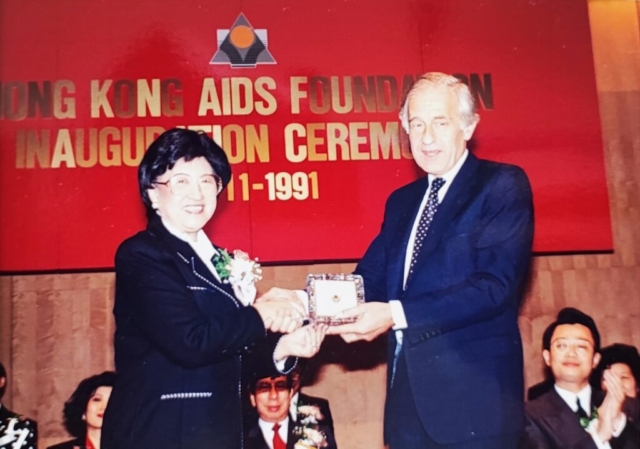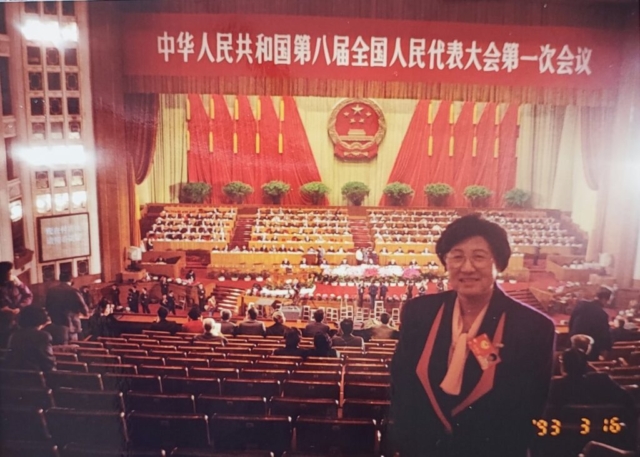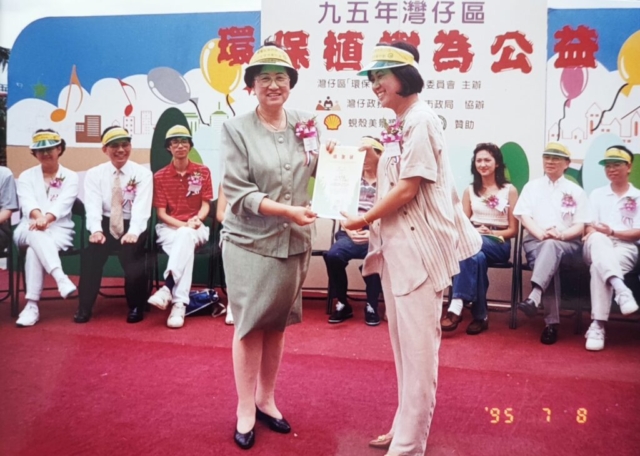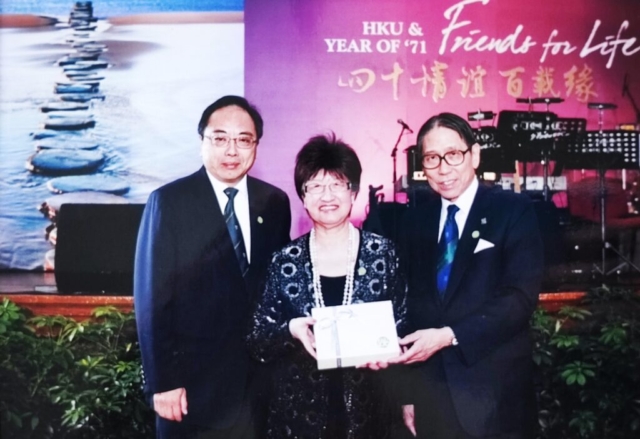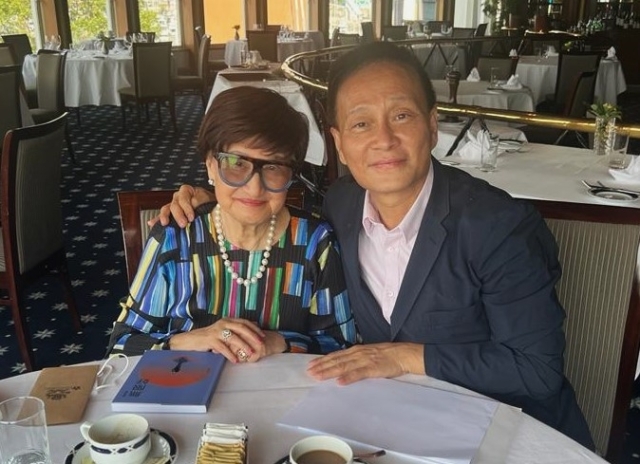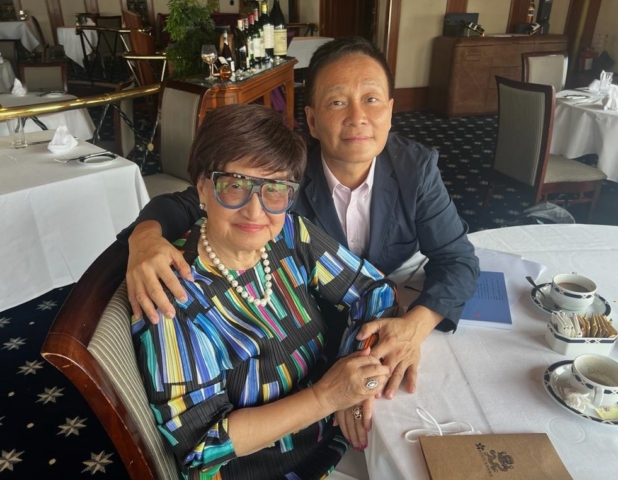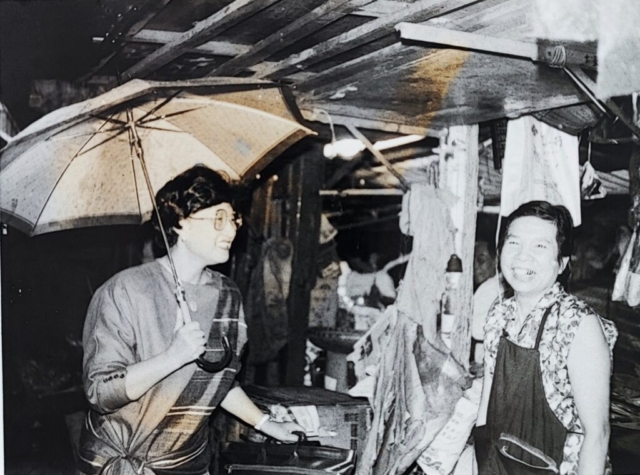07-09-22
In youth, we run into stupidity. In old age, stupidity runs away from us. The harvest of old age is the abundance of lessons wisely learnt.
The great leader of feminist movement in Hong Kong Peggy Lam Pei Yu-dja (林貝聿嘉) who has been defending 3 important things, namely equal social and economic rights(權利), status(地位) and opportunities(機會) for women since 1950 laughed gracefully, “Wisdom is not a short process of schooling. It is a lifelong attempt to acquire it. It is a pity that many people stop learning when they feel confident. The biggest loser is the one who is old but not wise!”
Peggy, born in 1928, is still glowing and energetic. She placed her hand under the chin, “When we look back at the history of Hong Kong in the 50s, 60s and 70s, many discriminations against women were stupid and some were cruel. There are shameful examples. Women were not given education. Women were not allowed to work. Until 1971, polygamy and concubinage were legal in Hong Kong. Premarital sex for a woman was socially unacceptable. A man could desert a wife when she was infertile or unable to give birth to a boy. Divorced women and widows were looked down upon.”
She gave a long sigh, “Baby girls were given away or sold to other families as daughters or maid because they were perceived as liabilities. Some young girls were asked to work in nightclubs and bars, or sometimes even as prostitutes, to support the family. Women, by no choice, could only work as live-in domestic servants and the prospect of marriage was thus deprived. For the educated women who got office jobs, their salaries were two-thirds of the men’s. Pregnancy was a common reason for dismissal.”
She foamed at the mouth, “A woman was compelled by law to add the husband’s surname to her identity card. Many social clubs refused female membership and if women wanted to join, they could do so only when they managed to find a man to propose them as associate members. What a shame that some husbands nominated a mistress instead of a wife to be an associate member! When parents (even a mother!) passed away, they bequeathed family fortune only to the sons. Daughters often got nothing.”
I questioned, “How did you and other female leaders turn the ailing Hong Kong around?” She grinned cheerfully and patted her handbag, “Economic independence! If we count on others for a living, women can never be in free control of our lives and get genuine freedom! I worked my whole life in The Family Planning Association of Hong Kong (香港家庭計劃指導會) educating women to have birth control and should not, in those days, bear 5 to 10 children when the family could not afford…”
Peggy poured herself a cup of lemon tea, “Women were lucky in the 1960s because Hong Kong was turning into the production base of light industry in Asia. Being a factory worker was an alternative but common occupation for girls who, linked themselves up to the new concept of family planning, could go out to work for decent money by making plastic flowers, wigs, toys and transistor radios. Marriage, husband and children were no longer a woman’s governing destiny. By being economically free, women set off a wave of political and social independence in Hong Kong!”
I looked into Peggy’s eyes, “Do you remember what we and other committee members did in the 2000s when we were asked by the Government to take part in the Women’s Commission. She revisited her past, “Yes, we procured the Government to implement a policy that there should be at least 30% female appointees in any government consultation body or committee. Now, there are generally 30% to 50% women at the decision-making levels except in respect of the board of directors of private corporations. Our same kinds must gather to remove such imbalance in high positions.”
The history of Peggy Lam goes back to 9 decades ago. Peggy was born in Shanghai but her mother was a Hongkonger. Her father was a Suzhou businessman and mother was a liberal-minded housewife. She told Peggy, “Unlike me, you must try to finish university education!” Despite World War II and civil war of China, Peggy struggled with studying alone in Shanghai in the 1940s and finally graduated as a social worker from University of Shanghai (滬江大學). She said, “A country, if weak, is vulnerable. Freedom of China lies in being strong!” In 1950, she travelled by ship to Hong Kong to reunite with her parents, 2 elder brothers and a younger sister. She planned to pursue a master’s degree in USA. Her renowned architect cousin, Ieoh Ming Pei (貝聿銘), who later designed the Pyramide du Louvre (羅浮宮金字塔), was working in America at that time. Fatalistically, she ran into the first campaigner of women’s rights movement in Hong Kong, Ellen Li (李曹秀群) and she, being a mentor, convinced Peggy to help her in liberating the poor local women. Peggy declined many regular job offers from the business world as her beliefs about gender equality were more than firm. She got married in 1955 and gave birth to a girl in 1957 who is now a doctor. Hong Kong has been her beautiful home.
The more Peggy fought for women’s rights, the more her efforts were recognised. Followers supported her to run schools, form women’s organisations and sports associations. She chaired Wan Chai District Council and turned herself into being a member of the Legislative Council of Hong Kong vocal in her advocacy for women. She received countless honourary doctorate degrees, fellowships, medals and awards. Peggy smiled, “In a life’s time, I will also disappear. All these are no more than mementos for me. I just want to be remembered as a humble woman ardent for contributing to the sexual equality in which women and men in Hong Kong should be treated in the same way.”
She paused, “Women in Hong Kong today have to be alert about one thing. As gender gaps are pretty much closed in Hong Kong, some females have lost their capability of being kind and gentle. Some are as rude or bad as some men. They talk dirty on public transport, make physical attacks, commit crimes, take drugs and abuse kids. Their spiritual parts are rotten and this is not the equality that we should aim at. This is why I always insist that women must have ‘3 selfs’: financial self-reliance, self-empowerment in terms of ability and now most importantly, ‘self-respect’. If a woman fails to respect herself as a decent lady, men will view her with great contempt!”
Elegance and wisdom are timeless. They withstand age. Some young girls measure their beauty by how much their outside can entertain others. Peggy Lam, in her 90s, measures her beauty by how much her inside can serve others. She said, “I live by myself. I go around on my own. I stop buying clothes, cosmetics and jewels. Haha! I am still a beautiful woman when you can look into my soul!”
Let us salute Peggy Lam. It is the hardest thing in the world to work for a goal for more than 70 years. Because of women leaders like Peggy, women were emancipated and men can benefit from women’s strengths nowadays.
This article can also be found at the following sites:






